#Wiccan holidays
Explore tagged Tumblr posts
Text
Happy Lughnasadh, Lammas, first harvest!🧡🌾
#witchblr#witchcraft#witch#baby witch#witch community#magick#witchcraft community#magic#lammas#lughnasadh#Wiccan holidays#wheel of the year#witchcraft blog#witch blog
6 notes
·
View notes
Text
Greetings, Star-Children!
[I'm not gonna lie, I don't know how people constantly post on media. I'm good for a week or two, a month was the max, and then I'm just forgetting to or never have the energy. Clearly something I gotta work on! Anyway, with there only being 2 weeks until Litha, I wanted to take some time to post about some things you can do/eat for it in preparation!!]
Litha, The Summer Equinox!
Time Frame:
Most commonly celebrated anywhere between June 19th -- June 23rd!
Colors:
Green
Red
Orange
White
Yellow
Light Blue
Gold
Plants:
Cinnamon
Oak Tree
Sunflower
Marigold
Mugwart
St. John's Wort
Vervain
Lavender
Rose
Foods:
Oranges
Sun Tea
Honey Cakes
Mead/Wine
Honey
Berries
Lemon
Cheese
Crystals:
Orange or Green Calcite
Carnelian
Amber
Citrine
Quartz
Garnet
Sunstone
Activites:
Bonefire/Baelfire/Campfire
Light Candles
Decorate a tree
Gather mistletoe
Handcrafting
Jumping OVER fires
Sharing mead/wine
Animals:
Bees
Dragonflies
Cows
Butterflies
Horses
Summer Birds
Phoenix
Other Associations:
The Fae
Sun Spirals
Wreaths
Torches
Wells
Deity Associations:
Apollo
Aten
Hestia
Horus
Lugh
Setting Up Your Altar
Choose an altar cloth of bright, vivid, summer colors! (Listed above)
Add appropriate flowers (listed above)
Adorn with honey, beeswax, or honeycomb pieces
Yellow or white candles!
Add a bottle of mead/wine and open during the Cake&Ale portion of the celebration!
Incense Scents:
Frankincense
Myrrh
Lemon
Rose
Pine
Vanilla
Types of Spells/Magic:
Happiness magic
Nature magic
Prosperous magic
Cleansing magic
Hopefully this helps yall with what to do and the many different ways to celebrate Litha!!
If you do celebrate, let me know how you did and share with me if this list helped you at all!!
Blessed Be and Stay Wicked, Star-Children!
As always, I DO take commissions for Tarot Readings as well! They are $5 for ANY reading, except Love and/or Relationship readings! Message me or send me an inbox/ask!
Thank you!!
#wicca#witchblr#tarotblr#tarot reading#witches of tumblr#tarot#litha#wiccans of tumblr#wiccanstuff#baby witch tips#baby wiccans#baby witches#wiccan holidays#wiccan
11 notes
·
View notes
Note
if a witch lives in the southern hemisphere, do they celebrate the holidays in reverse to those from the northern or do they celebrate them at the same time but incorrect seasons?
Reverse order! It's based off of the seasonal equinox if you're referring to the "Wiccan wheel of the year" holidays. So Upper Hemi's Yule would be the Lower Hemi's Litha. So on and so forth!
1 note
·
View note
Text
Blessed






Blessed Lughnasadh
The weather has been very rainy the last few weeks with thunderstorms and a lot of wind, it feels just like autumn but without the turtlenecks! Even today on Lughnasadh, we have been able to harvest a lot from the garden over the last few weeks. Herbs are drying in bunches, and flowers I've picked are ready to put in jars.
We celebrated lughnasadh simply, I baked Swedish Kardemummabullar buns, scones with mixed berries and made homemade jam with fresh nectarines and peaches. We enjoyed this all with a warm cup of herbal tea, listening to music and watching the rain nourish te greenery in the garden. Blessed turn of the wheel, can't believe Mabon is next!
289 notes
·
View notes
Text
Happy Yule to those that celebrate!!
And to everyone, a happy "daylight hours are getting longer again"! 🥰
#yule#yuletide#winter#winter solstice#Pagan#Paganism#Pagan witch#paganblr#Wicca#Wiccan#wiccan witch#wiccablr#Witch#witchcraft#witchblr#Wheel of the year#holiday#Seasons
158 notes
·
View notes
Text


Blessed Samhian to you!
I invite you to enjoy this blessed day at the end of the harvest. To feast with family and friends. Celebrate what this beautiful earth has provided. To live and laugh through song and dance.
Tonight we honor our ancestors. Spirits of our fathers and mothers, I call to you, and welcome you to join us for this night. You watch over us always, protecting and guiding us, and tonight I thank you.
#blessed samhain#pagan#pagan witch#wiccan#witch#trans#transgender#trans pride#transisbeautiful#mtf#transgirl#girlslikeus#mtf hrt#maletofemale#transformation#trans woman#trans women#trans women are beautiful#transexual#trans community#this is what trans looks like#trans feminine#happy halloweeeeeeen#happy halloween#real witch#it’s in the bloodline#pagan holidays#trans wiccan#wicca#pagan wicca
228 notes
·
View notes
Text

Blessed Lammas/Lughnasadh 🪻🥖🌻
#lammas#lughnasadh#pagan#fire festival#summer#wiccan#wheel of the year#pagan holiday#moodboard#celtic#celtic holiday#witchy aesthetic#witchcraft#witchblr#sabbats#sabbat#wicca
264 notes
·
View notes
Text

All About Imbolc
Imbolc, also known as Imbolg, celebrated on February 1st, marks the halfway point between the winter solstice and the spring equinox in early Ireland and Scotland, and also signified the beginning of the first signs of spring after all the harsh winter days. Originally a pagan holdiay in pre-Christian times, there is little in writing about the historic traditions and customs, although many historians believe it revolved around the Celtic Goddess Brigid, lambing season, and cleansing due to observed ancient poetry.
Brigid is a Goddess and daughter of the father-God of Ireland, Dagda. She is associated with quite a few things depending on the sources, but universally associated with wisdom and poetry. Other associations of hers are blacksmithing, protection, domesticated animals, childbirth, fire, and healing. She was also known as a protector of the home and the family.
Once Christianity arose, it is believed that the Goddess was syncretized with the Irish Saint Brigid by Christian monks due to the many overlapping associations. This caused Imbolc to quickly turn into St. Brigids Day and the next day into Candlemas with the rising Christian popularity, enmeshing the holiday associations together.
Today, many people have mixed the traditions and melded many associations from both religious and cultural history to celebrate their own unique way. Common ways to celebrate are making a Brigid's Cross, welcoming Brigid into the home, having a feast in her honor, cleaning the home and oneself, visiting a holy well, and in some parts of the world they still hold festivals and processions carrying a representation of Brigid. Many pagans nowadays are using associations of hers and their connection with nature to create their own ways to celebrate, however, and you can absolutely celebrate however you feel called to do so.
Imbolc Associations:
Colors - white, gold or yellow, green, and blue
Food - milk, butter, cheese, seeds and grains, breads, herbs, blackberries, oat porridge, wild onion and garlic, honey
Animals - sheep and lambs, swans, cows, burrowing and hibernating animals
Items - candles, corn dolls, Brigid's cross, fires, snowdrops and white flowers, crocuses and daffodils, flower crowns
Crystals - amethyst, garnet, ruby, quartz, bloodstone
Other - lactation, birth, feasting, farm preparation, cleansing and cleaning, the sun, poetry and creative endevours, smithing, water
Ways To Celebrate Imbolc:
make a Brigid's cross
light candles
have a feast
bake bread
plan your spring garden
leave an offering for Brigid
make a corn doll
craft a flower crown
clean your home
take a cleansing bath
make something out of metal
have a bonfire
look for the first signs of spring
make your own butter or cheese
do divination work and seek wisdom
write a poem
#magical#magic#magick#witch#witchy#pagan#paganism#witchblr#imbolc#imbolg#brigid#st brigid#candlemas#holiday#baby witch#witch tips#sabbat#wheel of the year#wiccan#celtic#gaelic#history#brigit#beginner witch#witchcraft#witchcore#cottage witch#hedge witch#green witch#eclectic witch
571 notes
·
View notes
Text
Every Pagan Holiday
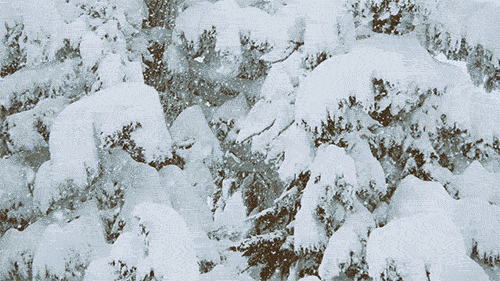
JANUARY
KALENDS
1st January
Origins: Ancient Greece/Rome
Observed by: Hellenic/Roman polytheists
Honouring Janus/Juno, first day of the Year. Kalends brought us the word 'calendar'.
ÞORRABLÓT (THORRABLÓT)
End of January/beginning of February
Origins: Iceland
Observed by: Heathens, Asatru
Midwinter Festival honouring Thor, usually by feasting and poetry.

FEBRUARY
IMBOLC
2nd February
Origins: Celtic polytheism /Ireland, as St. Brigid's Day
Observed by: Most neopagans, Wiccans, Druids, Asatru (as Charming of the Plow)
Imbolc is the most widely known and observed pagan holiday in the months of January and February. It falls at the beginning of spring/end of the winter for the Celtic peoples; marking the changing of the seasons, as most holidays do. St. Brigid is a Christianised form of or inspired by the Celtic fertility goddess Brigid who is celebrated on this day.
PARENTALIA
13th-21st February
Origins: Ancient Rome
Observed by: Greco-Roman polytheists
Translating to 'Ancestors Day', Parentalia is a nine-day celebration of deceased ancestors. Historically it was observed by feasting and making offerings and sacrifices to the dead and spirits of the underworld.
VÁLI'S BLOT
14th February
Origins: Old Norse
Observed by: Heathens, Asatru, Norse polytheists
Váli's Blot is considered by some Asatru to be the Norse equivalent of Valentine's Day but is widely acknowledged as a season changing festival. A day for marriage and celebrating with family and friends, and for remembrance of Váli, the son of Odin who defeated Höðr on this day.
LUPERCALIA
15th February
Origins: Ancient Rome
Observed by: Greco-Roman polytheists
Festival thought to honour a wolf who raised abandoned princes, celebrated originally by sacrificing goats to the gods, feasting, and, for fertility, nudity and fornication.
LESSER ELEUSINIAN MYSTERIES
17th-23rd February
Origins: Ancient Greece
Observed by: Hellenic polytheists
Initiation to the cult of Persephone and Demeter by sacrificing a pig. Prelude to Greater Mysteries, initiations held on these dates. Once completed, initiates could then move onto Greater Mysteries in the autumn.
ANTHESTERIA
27th February - 1st March 2021
Origins: Ancient Greece
Observed by: Hellenic polytheists
Athenian festivals dedicated to Dionysus and the dead. Held around the full moon in the month of Anthesterion, which in the Gregorian calendar this year roughly translates to 27th February.
THE DISTING/DÍSABLÓT
End of February/beginning of March
Origins: Uppsala, Sweden
Observed by: Heathens, Asatru, Norse polytheists
Celebration of Valkyries and other female spirits, called dísir. Sacrifices were made for a good harvest. Celebrated still by an annual market in Sweden.
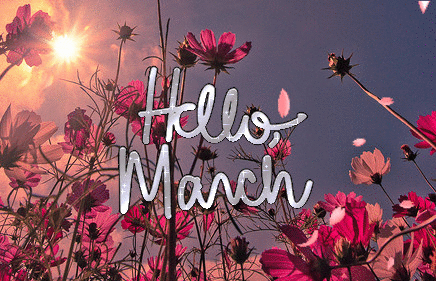
MARCH
KALENDS
1st March
Origins: Ancient Greece/Rome
Observed by: Hellenic/Roman polytheists
Honouring the god Mars/Ares. Kalends brought us the word 'calendar'.
OSTARA/EARRACH
20th March
Origins: Anglo Saxon paganism, popularised as Ostara by Wicca
Observed by: Anglo Saxon Pagans, Wiccans, Neopagans, Druids (as Alba Eilir), Heathens (as Summer Finding), Ásatrú (as Sigrblót)
The northern hemisphere's vernal equinox, the word Ostara was introduced though Wicca and named for the goddess Eostre. Surprisingly unrelated to Easter in all but name, Ostara symbolises the beginning of spring. As a seasonal holiday it is widely celebrated by many different groups of pagans.
RAGNAR LODBROK'S DAY
28th March
Origins: Icelandic Sagas
Observed by: Ásatrú
Day of remembrance for Ragnar Lodbrok, Viking King of legend

APRIL
KALENDS/VENERALIA
1st April
Origins: Ancient Greece/Rome
Observed by: Hellenic/Roman polytheists
Celebration of the first of the month, this one honouring the goddess, Venus.
REMEMBRANCE FOR HAAKON SIGURDSSON
9th April
Origins: Norway, C9th
Observed by: Ásatrú
Day of remembrance for ruler of Norway who claimed lineage to Odin in the Icelandic Sagas.
WALPURGISNACHT
30th April
Origins: German Christianity, originally Saint Walpurga was known for banishing witches and other pests
Observed by: LaVeyan Satanists
Anton LaVey chose to celebrate this holiday as a follow up to the spring equinox and due to its past association with witchcraft.
HEXENNACHT (WITCHES' NIGHT)
30th April
Origins: German folklore, as Walpurgisnacht but witches were alleged to convene with the devil in this night
Observed by: Temple of Satan as 'a solemn holiday to honour those who were victimized by superstition'.
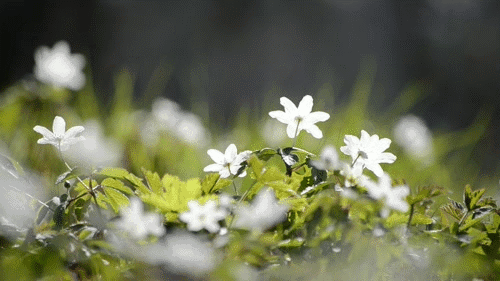
MAY
BEALTAINE/BELTANE
1st May
Origins: Celtic (Ireland/Scotland/Isle of Man)
Observed by: Wiccans, Neopagans, Celtic reconstructionist, Ásatrú/Heathens (as May Day)
One of the more well-known pagan festivals, Beltane is a festival of fire and the beginning of the summer. Also widely referred to as May Day, it is celebrated by lighting fires.
KALENDS
1st May
Origins: Ancient Greece/Rome
Observed by: Hellenic/Roman polytheists
Honouring the goddess Maia, for whom the month may have been named.
REMEMBRANCE FOR Guðröðr of Guðbrandsdál
9th May
Origins: C11 Norway, Icelandic Sagas
Observed by: Ásatrú, Norse, heathens
Guðröðr had his tongue removed by Óláfr for rebelling against violent conversion from Norse paganism to Christianity.
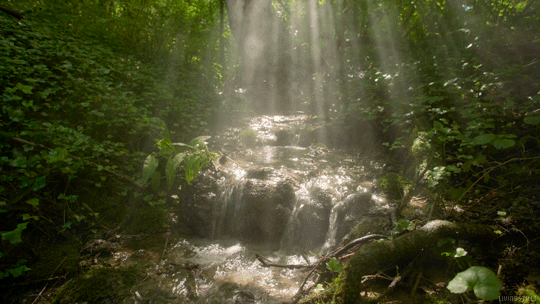
JUNE
KALENDS
1st June
Origins: Ancient Greece/Rome
Observed by: Hellenic/Roman polytheists
Anniversary of temples to Juno Moneta (protectress of money, her temple was where coins were made), Mars/Ares (God of war), and the Tempestates (goddesses of storms).
ARRHEPHORIA
3rd Skirophorion (translates to mid-June)
Origins: Ancient Greece
Observed by: Hellenic reconstructionist
Feast in celebration of Athena and fertility.
MIDSUMMER/SUMMER SOLSTICE
21st June
Origins: Agricultural holiday/longest day observed for centuries by many civilisations. Christianity can date to as early as C4th
Observed by: Wiccans/Germanic neopagans (as Litha), Asatru/Heathens, Druids (as Alban Hefin)
One of the main four holidays in the Wheel of the Year and popularised by Wiccans and neopagans as Litha which is taken from the Anglo-Saxon words for June/July, this is the longest day of the year and the middle point and sometimes considered the beginning of summer.

JULY
REMEMBRANCE FOR UNNR/AUD THE DEEP MINDED
9th July
Origins: C9th Iceland
Observed by: Ásatrú, Heathens, Norse reconstructionist
Aud was a traveller in the 9th century moving between Dublin, the Hebrides, Orkney, and finally Iceland following the deaths of her husband and son. This day is to honour her memory.
HERACLEIA
July/August
Origins: Ancient Greece
Observed by: Hellenic polytheists
Festival dedicated to Heracles the demigod and his death, involving feasting and celebration.

AUGUST
LUGHNASADH/LAMMAS
1st August
Origins: Celtic Britain (Ireland, Scotland, Isle of Man)
Observed by: Wiccans, Neopagans, Christians (as Lammas), Ásatrú (as Freyfaxi)
Named for the god Lugh, this festival is one of the Celtic harvest festivals and marks the beginning of the harvesting months. It was celebrated by climbing mountains, bull sacrifice, offerings, and feasting. Handfasting is commonplace with Wiccans in modern times.
REMEMBRANCE FOR REDBAD, KING OF THE FRISIANS
9th August
Origins: C7th Frisia (area of Germany/Netherlands)
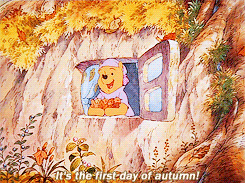
SEPTEMBER
NOUMENIA
8th September
Origins: Ancient Greece
Observed by: Hellenic polytheists
Celebration of new Hellenic lunar month. Offerings of honey and incense made to household deities.
REMEMBRANCE FOR HERMANN THE CHERUSCAN
9th September
Origins: C9th CE
Observed by: Heathens, Ásatrú
Hermann the Cheruscan, also known as Arminius of the Cherusci tribe, led the defeat against the Romans at the Battle of Teutoburg Forest and is lauded for saving Eastern Germanic peoples from being conquered by the Roman Empire.
AUTUMN EQUINOX (NORTHERN HEMISPHERE)
22nd September
Origins: 1970s neopaganism
Observed by: Wiccans and Neopagans (as Mabon), Ásatrú (as Winter Finding)
Named Mabon by prominent Wicca and Neopagan Aidan Kelly, after the Welsh mythological figure Mabon ap Moldron, the autumn equinox is one of the harvest festivals and marks the beginning of autumn in the northern hemisphere. Mabon is a relatively new pagan holiday not based on any specific historical festival, but traditionally people around the world would celebrate some kind of harvest festival around the end of September/beginning of October.
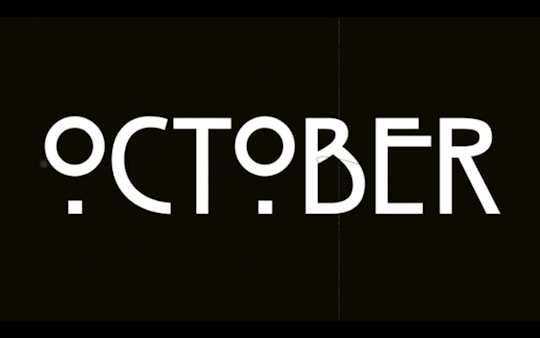
OCTOBER
PYANOPSIA
7th October
Origins: Ancient Greece
Observed by: Hellenic polytheists
Pyanopsia, or Pyanepsia, is a festival to honour Apollo, one of the most important deities, God of music, the sun, knowledge, healing, and archery - amongst other things. During the festival, two special offerings would be placed on doorways and carried to the temple. These offerings were a bean stew, and an olive branch wrapped in wool with honeys, pastries and seasonal fruits hanging from it.
REMEMBRANCE FOR LEIF EIRIKSSON
9th October
Origins: C10th CE
Observed by: Heathens, Ásatrú, Norse pagans
Remembrance for Leif and his sister Freydís Eiríksdóttir, children of Erik the Red, who are cited with being the first Norse explorers in North America.
THESMOPHORIA
12th-14th October
Origins: Ancient Greece
Observed by: Hellenic polytheists
Festival held in honour of Demeter Thesmophoros, goddess of agriculture, and her daughter Persephone, goddess of death and life, Queen of the Underworld. Celebrated primarily by women, this festival is linked with fertility, and we know very little about it due to its secretive rites. It is thought that it involved the sacrifice of pigs (although some sources say women), and abstinence.
REMEMBRANCE FOR ERIK THE RED
28th October
Origins: C9th CE
Observed by: Heathens, Ásatrú, Norse pagans
Erik the Red, probably named for the colour of his hair and beard, was the first permanent European settler in Greenland. His children were explorers too, who went to America, and although his wife converted to Christianity, Erik remained faithful to his Norse pagan gods.
SAMHAIN (HALLOWE'EN)
31st October-1st November
Origins: Gaelic - Scotland, Ireland, Isle of Man
Observed by: Celtic pagans, Neopagans, Wiccans
Pronounced SOW-in (sow rhyming with cow), Samhain was originally a harvest festival marking the beginning of winter. The day itself is the 1st November, but celebrations begin on October 31st, and this has become the accepted associated day. It's a festival of the dead, where the síthe, fae and spirits, can enter this realm from their own. Wiccans talk of a 'veil' thinning, meaning the boundary between worlds. Similar death related festivals around this time can be noted in other faiths from across the globe, and of course in the modern Hallowe'en.
WINTER NIGHTS (VETRNAETR), ÁLFABLÓT/DÍSABLÓT
31st October
Origins:
Celebrated by: Heathens, Ásatrú, Norse pagans
Winter Nights is mentioned in the Ynglinga Saga as one of the three greatest blessings of the year, the other two being Sigrblót in April, and þorrablót in late Jan/early Feb. Winter Nights is the celebration of the beginning of the winter season; Álfablót is a sacrifice to the elves, and Dísablót a sacrifice to the female spirits (dísir) and Valkyries.
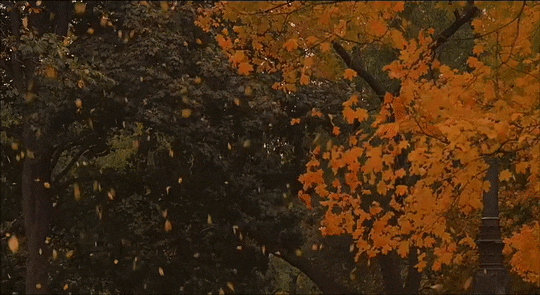
NOVEMBER
REMEMBRANCE FOR SIGRID THE HAUGHTY
9th November
Origins: C9th CE
Observed by: Heathens, Ásatrú, Norse pagans
It is not actually known whether Sigrid Storråda, or Sigrid the Haughty, was an actual historical figure, an amalgamation of a few, or simply a myth. The lore goes that she was proposed to multiple times and turned down many but went on to orchestrate conflict when a potential suitor - Olaf Tryggvason, King of Norway - attempted to convert her to Christianity.
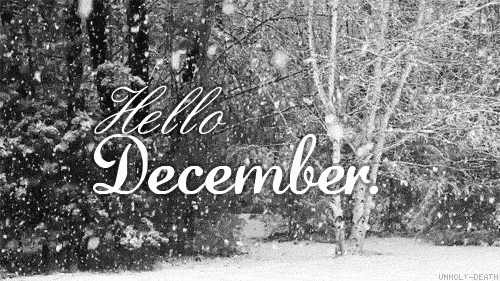
DECEMBER
REMEMBRANCE FOR EGILL SKALLAGRÍMSSON
9th December
Origins: C10th CE
Observed by: Heathens, Ásatrú, Norse pagans
Day celebrating the poet, farmer, and berserker Egill Skallagrímsson, who is recalled in The Icelandic Sagas by Snorri Sturluson. Egill is known for his many killings and escaping death by writing an epic poem after being captured when washing up on our Northumberland coastline.
SATURNALIA
17th - 23rd December
Origins: Ancient Rome
Observed by: Roman polytheists, some Hellenic
Like Yule and Lesser Dionysia, Saturnalia was the Roman winter festival celebrating the coming return of the sun and honouring the god Saturn. The standard feasting and drinking feature, and slaves would be treated as equals like Dionysia. Saturnalia is another festival cited as being picked up by Christians and used as inspiration for Christmas.
WINTER SOLSTICE (YULE/MIDWINTER)
21st December
Origins: Germanic nations, as early as C4th CE
Observed by: Norse pagans, Wiccans, Neopagans, LaVeyan Satanists, Ásatrú, Heathens, many Germanic nonpagan peoples
Yule is the midwinter festival known commonly among pagans as a time for feasting, being with loved ones, remembering ancestors, and looking forward to the return of the light and warmer days. Many pagans will celebrate Yule for more than one day, some celebrating a week either side, some for longer, up to two months, and some for twelve days afterwards. True Yule would have originally been in January for midwinter, but King Haakon the Good
moved it to coincide with the Christian celebrations in the 10th century, as told in the Ynglinga Saga.
On the 24th of December, Anglo Saxons are said to have celebrated 'Mothers Night' honouring female ancestors.
RURAL/LESSER DIONYSIA
End of December/beginning of January
Origins: Ancient Greece
Observed by: Hellenic polytheists
Smaller festival honouring the god Dionysus (Greater Dionysia took place in cities at the end of winter). Feasting, mask wearing to stop distinction between classes so that everyone could feel equal, sacrifices, parades, and phallic display were all used to celebrate.
#wheel of the year#wiccan#pagan#heathen#greek#mythology#holidays#religious holidays#pagan holidays#non-Abrahamic holidays#witch#witchcraft#witchblr#pagan wicca#polytheism#paganism#witches#witch holidays#witches holidays#pagan witch
306 notes
·
View notes
Text
I cannot stand the discussion over 'Christmas stealing from pagans' every God damn year. I'm not Christian anymore but I celebrate the holiday with my family because they are and I love them and I find feast days with lots of singing fun.
Some moron is insisting that "well actually you're celebrating Yuuuule"
No idiot I'm inside a fucking Christian church singing songs about baby Jesus with my dad and addressing gifts from Saint Nicholas I am not celebrating fucking Yule. I know what I'm doing. If Jesus is mad at me for coming to his birthday party when I don't plan to hand my soul to him he can come down and stop me his fucking self I am watching The Grinch.
#when i became pagan jesus became just another face in a lineup of dozens of gods#im not scandalized by celebrating one of his holidays any more than id be upset being invited to a wiccan celebration#and im not wiccan either#the stupid part is its other pagans insisting i cant celebrate christmas and not even the christians this time#the christians want to force it on me and the pagans want to take it away#neither of them consider that i do what i want with my own religion
106 notes
·
View notes
Note
Oooo could you tell me more about Ostara?
Sure!
Ostara *as I was raised with it* is a celebration of the spring equinox!!
Generally celebrated with spring flowers and veggies and tea, lots of yellow and dancing about. There's also dying eggs (though rabbits and eggs are more a Brigit thing given her spring story) and planting seeds, and in my family we also do a spring wish ritual where you have a sip of juice/wine and make a wish and pour it to the ground in thanks for the season!
As I was raised wiccan though, I should mention that the holidays I was raised with where basically a giant combination of others holidays. So while I do celebrate them still I have had to go back and sort out which parts are mine to celebrate and which aren't.
12 notes
·
View notes
Text
Watching tfone dvd extra features, and, I hate to sound like an old white man, but….
It’s like I’m watching prime again
#transformers#tf#maccadam#tf one#I’m high hehe#merry christmas#happy haunica!#happy yule#happy hollidays#hope yall wiccans are doing ok this holiday#tf prime#star wars#the clone wars#siege of mandalore#mandalore#death watch#also feels like Star Wars#i’ll explain later#when I sober up#love yall#bisexual#lgbtqia#lgbtq community#queer pride#pride month#bisexaul
20 notes
·
View notes
Text
Can Online Pagans/Wiccans/Witches stop claiming that every Saint, Holiday, Tradition etc is Pagan? it's very annoying to hear "uhm AKHTSUALLY [Holiday/Holiday Tradition] is From [Pagan Holiday/Tradition]" or "Uhm AKHTSUALLY [Saint/Figure] is [Pagan God/Godess]" it's annoying and it's sometimes misinformation. Not everything has roots in Paganism.
#ex pagan#ex witch#ex wiccan#paganism#pagan#norse paganism#norse mythology#norse gods#greek gods#greek paganism#greek polytheism#greek mythology#witchblr#witch#pagan holidays
19 notes
·
View notes
Text
About the Wiccan Holiday on the Wheel of the Year - LITHA
LITHA / JUNE 20 – 22 / the peak of the sun’s power and the longest day and shortest night of the year- when the sun reaches it’s zenith. KEY THEMES Power of the sun Balance and transition Fertility and fulfillment TRADITIONAL SYMBOLS AND TOOLS Sun wheels, oak leaves, sunflowers, herbs (like St. John’s Wort), and fire are key symbols. Colors often include gold, yellow, green and…
#about#blog#blogger#bonfires#candles#evening#fire#gold#green#herbal#internet#internet blogger#late evening post#like for like#longest day#power of the sun#read for read#red#sun wheels#sunflowers#symbolism#talismans#the sun#wicca#wiccan holiday#witch#witchcraft#witches#witches of wordpress#witchy
7 notes
·
View notes
Text
I wish everyone who celebrates Beltane a very happy Beltane! But this Heathen celebrates International Worker's Day, and mourns those martyrs lost in the May Day Massacre and their sacrifice to get us an eight hour work day. Can't fight fascism without fighting for fair labor practices and against capitalism!
#the eight and a half hour schedule pisses me off#because that half hour of lunch is still spent at work#and people DIED to get us an eight hour work day#anyway this is the anticapitalist antifascist holiday#and beltane is nice but has never really rung true#especially since it's mostly a composite holiday due to wiccan influences and the european diaspora
9 notes
·
View notes
Text
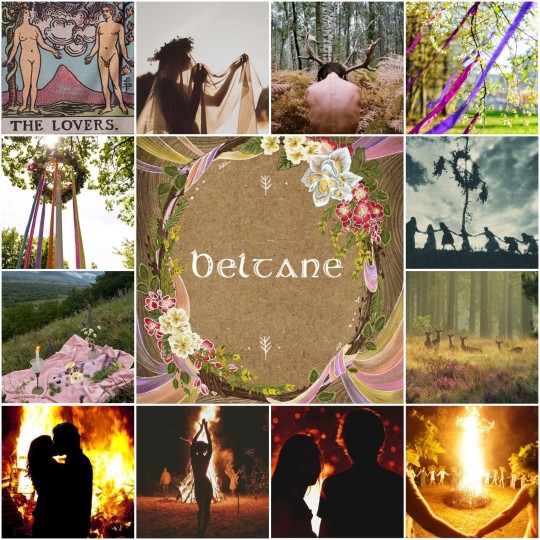
Blessed Beltane 🏵️🌱🌼
#beltane#may day#pagan#wicca#wiccan#first of may#may first#witch#witchcraft#witchy#pagan holiday#fire festival#sabbat#sabbats#spell#spell work#divination#tarot#spring#summer#the goddess#the horned god#fertility#fertility festival#moodboard#witchy moodboard#wheel of the year
70 notes
·
View notes